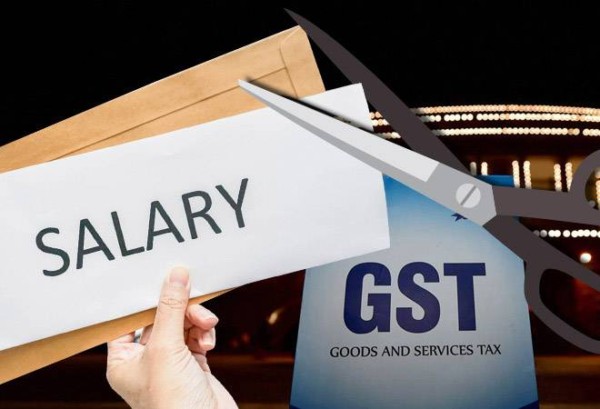Reports said that a large part of the reimbursement of employees working in private sector may come under taxation net.
A large chunk of the reimbursement part of employees working in private sector may come under taxation net as the government is said to be mulling over bring “indirect earning” under the Goods and Services Tax (GST). The relevant amendment in the GST rules may be discussed and approved in the next meeting of the GST Council.
The idea of bringing reimbursements under the GST net flows from a recent ruling of the Authority of Advance Rulings (AAR) on canteen charges. The AAR ruled that the canteen charges recovered from an employee were to GST rates.
This ruling may prompt employers to stop charging for canteen services in a bid to save taxes, which, in turn, is likely to impact the salary packages. The employers would not prefer to increase the cost to company for their employees.
In a case involving a Kerala-based footwear company Caltech Polymers, the AAR ruled, “recovery of food expenses from the employees for the canteen services provided by company would come under the definition of ‘outward supply’ as defined in Section 2(83) of the Act, 2017, and therefore, taxable as a supply of services under GST.”
Is the ruling going to impact other parts of reimbursement component of salary? “The decisions by the Authority of Advance Rulings are not binding on the GST Council. Both are independent of each other. The AAR works under finance ministry and has a lot to do with the Income Tax department while the GST is dealt with by a separate GST Council,” chartered accountant Manindra Tiwari told KhabarLive.
“However, the GST Council may consider the rulings given by the AAR while considering revision in GST rules. The logic is simple: the reimbursements are not taxed because they are claimed after expenses have been made and relevant taxes already paid. But, the counter logic is that reimbursements involve earnings made indirectly and hence should be taxed,” Tiwari further explained.
If the GST Council agrees to expand the ambit of the GST to bring reimbursements under the indirect tax net, it is certainly going to burn bigger holes in the pockets of employees working in private sectors.
So, reimbursements on home rentals, telephone bills, premiums for additional health insurance coverage, health check-ups, conveyance, gym, professional attires, entertainment or similar expenditure may attract GST. The corporates may soon be found restructuring salaries of their employees, to pass on the additional GST cost on to employees. #KhabarLive







